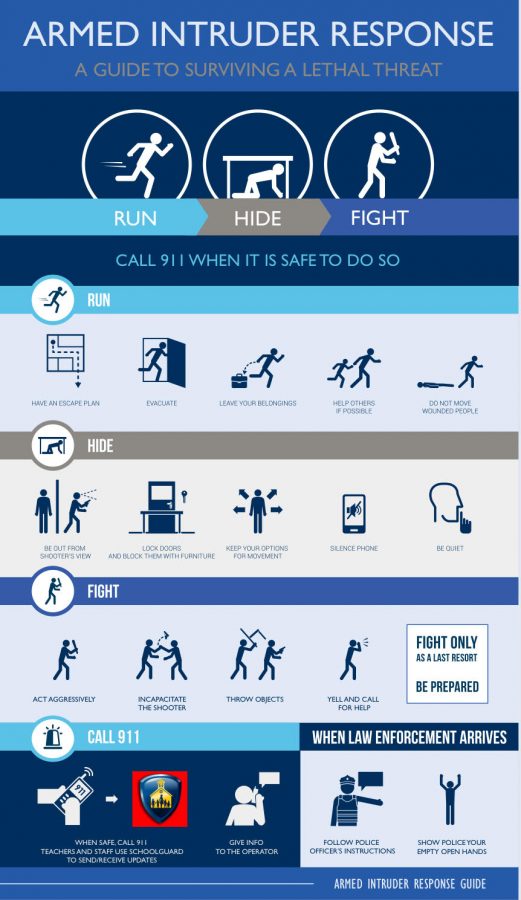What If […..] Actually Happens?
A Student’s Guide to School Drills
this was made by office dewitt.
Ear-piercing alarms come to life at every corner: Attention! There is an intruder in the building. Please evacuate the building or hide and be prepared to defend yourself if necessary. There are no adults in sight. It is after school. What are you supposed to do? For many students, the school drills were regarded as nothing more than a safety net or inconveniences we could all do better off without, until an accidental intruder alarm went off several weeks ago, and the theoretical suddenly became very tangible.
Obviously, with COVID-19 all sorts of school traditions are being modified to fit the new regulations on masks, social distancing, and more. However, Westminster Christian Academy (abbreviated to WCA) remains just as committed to developing school preparedness for handling emergencies like intruder drills, fires, and tornadoes safely. For instance, here at WCA, all visitors are still required to sign in and sign out, every entrance is locked from the outside during the school day, and an anonymous tip line is available for reporting any potential concerns. Officer DeWitt, the resident security officer at Westminster Christian Academy, draws upon 33 years of experience to protect the school and students.
“You are safe here, that you don’t have to worry, that I and everybody else in the building really takes safety seriously and we don’t want you to be fearful for your safety here. And then second would be, be aware of your surroundings, if you see something wrong happening or if you think something wrong is going to happen, don’t be afraid to say something,“ said Dewitt. Currently, approximately 80% of American schools are preparing for the eventualities of a tornado drill, fire in the building, or armed intruder with a permanent trained law enforcement officer. Indeed, having police officers in schools deters most incidences of violent crime and already 35% of American K-12 schools have adopted security resource officers or some variation of security personnel.
As far as whether or not the drills can be categorized in terms of most important, in general, all the drills practiced are equally urgent and need to be taken seriously. “[W]e do the drills so we can put our plans in practice, in a practice kind of environment where nerves aren’t so high, and you know, when your adrenaline is high, your cognitive ability is diminished…hopefully [you can] commit some of those practices to memory without really having to think much on them,” said Officer DeWitt
While contingency plans for natural disasters and armed intruders alone may cause students to worry, it is important to remember that the relative peace and security our nation enjoys was bought in blood precisely to insure that future citizens may be able to thrive and live without fear. Dwelling on the ‘what if’s’ of the future defeats the purpose and diminishes the value of what we have already gained.
Instead, the role students play is to first and foremost obey their teacher’s instructions promptly in the event of an emergency, and, in the meantime, focus on academic studies. To the ideal pupil, of course, a ‘hear nothing, see nothing’ mindset is just as foreign as neglecting schoolwork in favor of indulging fanciful speculation. At the same time, should students actually find themselves confronted with an incongruity that needs to be looked into, the more detailed information about people, places, and names they can provide, the better.
While some may wonder why the school-wide drills are even necessary, crowd-sourced tipline information has proven to be a valuable resource for the protection of such a massive campus and student body. Using the link on the WCA website, students can share concerns anonymously knowing that every tip-off is investigated thoroughly and serves as a practical preventative measure for the continued safety of Westminster.
In the end, while they must be adequately prepared for the potentialities we anticipate in school drills, students need not permit the remote possibility of a worst case scenario to infringe unduly on their peace of mind.
Rapidly evolving situations require proportionate responses




